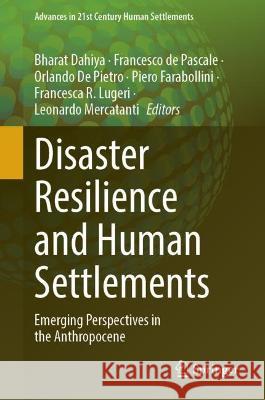Disaster Resilience and Human Settlements: Emerging Perspectives in the Anthropocene » książka
topmenu
Disaster Resilience and Human Settlements: Emerging Perspectives in the Anthropocene
ISBN-13: 9789819922475 / Angielski
Disaster Resilience and Human Settlements: Emerging Perspectives in the Anthropocene
ISBN-13: 9789819922475 / Angielski
cena 603,81
(netto: 575,06 VAT: 5%)
Najniższa cena z 30 dni: 539,74
(netto: 575,06 VAT: 5%)
Najniższa cena z 30 dni: 539,74
Termin realizacji zamówienia:
ok. 16-18 dni roboczych.
ok. 16-18 dni roboczych.
Darmowa dostawa!
Kategorie BISAC:
Wydawca:
Springer
Seria wydawnicza:
Język:
Angielski
ISBN-13:
9789819922475











